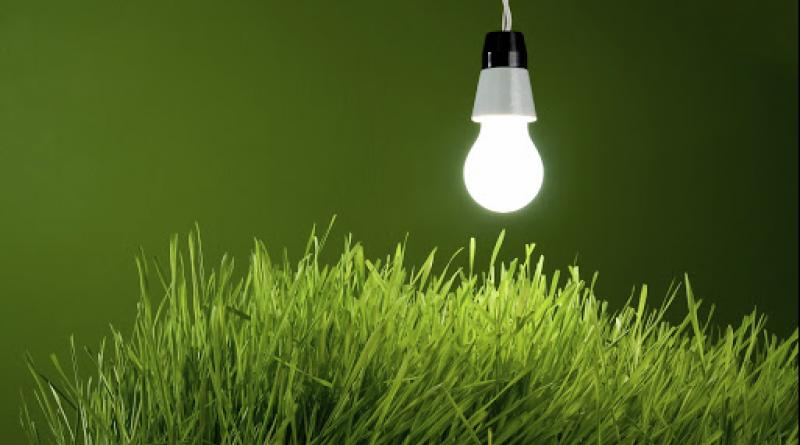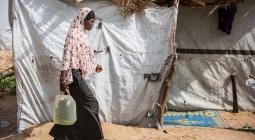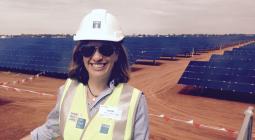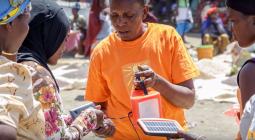How These 3 African Women Scientists Are Fighting To Save Humanity.

The African Institute of Mathematical Sciences (AIMS) today announces its second cohort of the AIMS Women in Climate Change Science Fellowship whose research is contributing to the fight to preserve humanity in the face of climate change.
“It gives me great pleasure to announce the second cohort of the AIMS Women in Climate Change Science Fellows. The selected Fellows, whose research is contributing to the fight to save our humanity from the ravages of climate change deserve to be celebrated and supported. Research to respond to climate change must be multidisciplinary and incorporate the perspectives of women. AIMS and our partner, the Canadian government, feel strongly that supporting female researchers in climate change science in Africa will help to achieve sustainable solutions”, said Mr Thierry Zomahoun, President and CEO of AIMS.
Each Fellow, selected by an international scientific committee through a rigorous process, is awarded around USD 35,000 over a one year period to execute a self-initiated research project in a selected African host institution. The projects have the potential to contribute significantly to the understanding of climate change and its impacts, and to the development
and implementation of innovative, empirically grounded policies and strategies for climate change adaptation and resilience.
The AIMS Women in Climate Change Science Fellowship Program is funded under the Mathematical Sciences for Climate Resilience (MS4CR) Program, which was made possible by a five-year grant from the Canadian International Development Research Centre, with financial support from the Government of Canada through Global Affairs Canada.
“The International Development Research Centre (IDRC) extends its sincere congratulations to the second cohort of Women in Climate Change Science Fellows. We are proud of the research by the first cohort of fellows, which concentrated on climate extremes and eco-systems affecting much of Sub-Saharan Africa, and know this second cohort of outstanding mathematical scientists will match that success and make a significant contribution in ensuring an inclusive, climate-resilient and sustainable future for the region. We look forward to many more success stories from our involvement with AIMS, which IDRC has valued ever since 2010 when Canada became the first donor to help AIMS expand across
Africa,” said Jean Lebel, IDRC President.
Get to know the second cohort of AIMS WiCCS Fellows;
Naomi KUMI (Ghana)
Senior Meteorologist and Head of Climatological Unit at the Ghana Meteorological Agency Dr Kumi is a Senior Meteorologist and head of the Climatological Unit at Ghana. Meteorological Agency, where she has worked for the past 10 years. She holds a PhD degree from the West African Science Service Centre on Climate Change and Adapted Land Use
(WASCAL) at the Federal University of Technology (FUTA), Akure, Nigeria. She is a Meteorologist and Climate Scientist. In her current role as a forecaster and researcher, she generates seasonal forecasts for Ghana, evaluates of climate models, and assesses climate impact over West Africa.
During her fellowship tenure, she will investigate the impact of climate change on the production of some selected crops in Ghana. She will be hosted by the Department of Environmental and Geographical Science, University of Cape Town, South Africa.
Ossénatou MAMADOU (Benin)
Lecturer and Researcher at the Institute of Mathematics and Physical Sciences, Dr Mamadou is a Lecturer and Researcher at the Institute of Mathematics and Physical Sciences in Benin. Dr Mamadou is a Micrometeorologist with a background in Physics. She completed a PhD from Grenoble and Abomey-Calavi universities and held a postdoctoral position within Biosystems Physics Unit at the University of Liege, where she investigated the carbon balance of an intensively managed grassland. Her current research, made possible through an OWSD Early Career Fellowship, focuses on the assessment of the surface-atmosphere interactions in West Africa.
During her fellowship tenure, Dr Mamadou will use a wavelet transform to identify cycle and periodicities in surface ecosystems exchanges in order to understand how land use and land cover changes may affect them under climate change. She will be hosted by Kwame Nkrumah University of Science and Technology during her fellowship tenure.
Lala Kounta (Senegal)
Post-doctoral Researcher at the “Laboratory De Physique De l’Atmosphère et De L’ocean Simeon Fongang, Dr Lala Kounta is a Physical Oceanographer and Post-doctoral Researcher at the “Laboratory de physique de l’Atmosphère et de l’ocean Simeon Fongang (Dakar).”
She has a Physics background with a Bachelor and Master in Physics. She obtained a Research Masters in Engineering Sciences, with a speciality in Meteorology, Oceanography and Arid Land Management before enrolling in her PhD. Her research focuses on the dynamical functioning of the West African upwelling system with a focus on the circulation in the eastern tropical North Atlantic off West Africa.
During her fellowship tenure, Ms Kounta proposes to explore the role of the ocean current on regional/local climate modulation, particularly the role of the West African Boundary Current (WABC) as a determinant of Senegalese atmospheric and oceanic conditions on hot days which presents significant risks to public health and marine ecosystems. Her research
aims to contribute to a better prediction of extremely hot days in present conditions and better anticipation of how their statistics will be impacted by climate change and help pave the way for policy-makers for adaptation to future conditions.
8 March 2020
Ventures Africa




